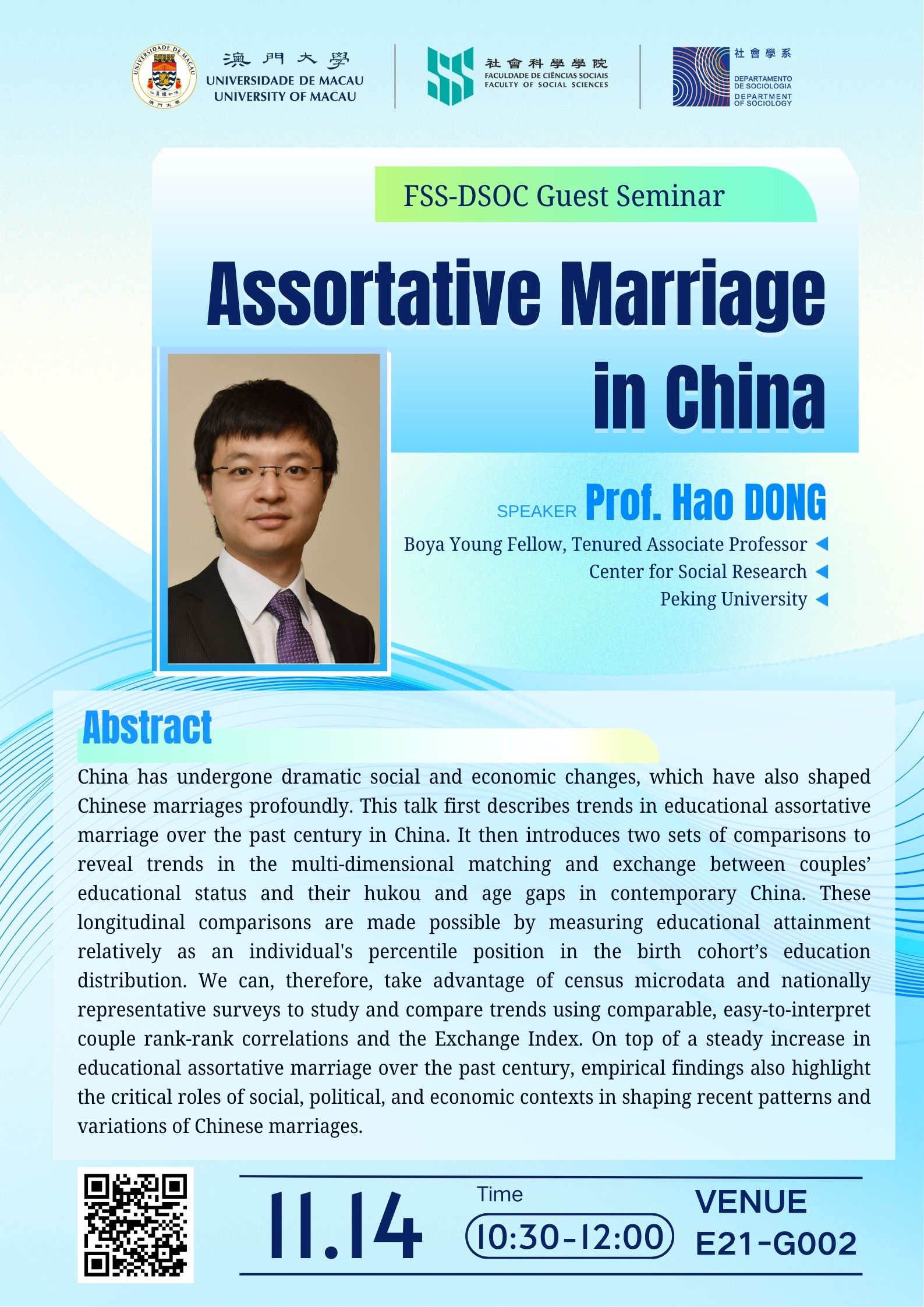
Date: November 14
Time: 10:30 am – 12:00 pm
Speaker: Prof. Hao DONG
Venue: E21B-G002
Organizer: Department of Sociology
Phone: 8822 4595
China has undergone dramatic social and economic changes, which have also shaped Chinese marriages profoundly. This talk first describes trends in educational assortative marriage over the past century in China. It then introduces two sets of comparisons to reveal trends in the multi-dimensional matching and exchange between couples??educational status and their hukou and age gaps in contemporary China. These longitudinal comparisons are made possible by measuring educational attainment relatively as an individual’s percentile position in the birth cohort? education distribution. We can, therefore, take advantage of census microdata and nationally representative surveys to study and compare trends using comparable, easy-to-interpret couple rank-rank correlations and the Exchange Index. On top of a steady increase in educational assortative marriage over the past century, empirical findings also highlight the critical roles of social, political, and economic contexts in shaping recent patterns and variations of Chinese marriages.
Hao Dong is Boya Young Fellow Associate Professor at the Center for Social Research, Guanghua School of Management, Peking University. Prior to joining Peking University, he worked as a Postdoctoral Research Associate at Princeton University and earned his PhD in Social Science from the HKUST. His research concerns family demography, social stratification and mobility, comparative historical demography, and quantitative methods and computational social science. His work has appeared in American Journal of Sociology, Demography, Evolution and Human Behavior, Explorations in Economic History, Journal of Marriage and Family, IEEE TVCG, PNAS, 社會學研究, 歷史研究, and 人口研究, among other international and Chinese academic journals.

